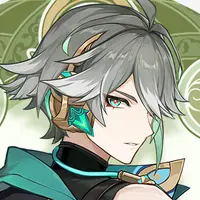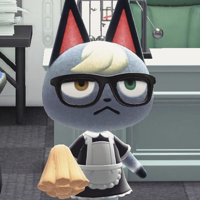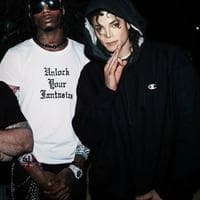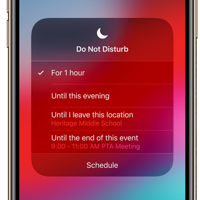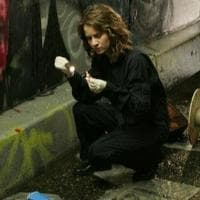Simon “Ghost” Riley (Reboot) type de personnalité MBTI
Personnalité
"Quel type de personnalité est Simon “Ghost” Riley (Reboot)? Simon “Ghost” Riley (Reboot) est un type de personnalité INTJ dans MBTI, 5w6 - sp/sx - 514 dans Enneagram, RCOEN dans Big 5, LSI dans Socionics."
Good training/body condition does not equal high Se; I think we already have that covered. Additionally, Ni coupled with Te would display excellent tactics and versatility, so it’s not necessarily a dominant/auxiliary Se thing. The cognitive functions *manifest differently* depending on which slot they’re in. The child function shows vulnerability and is shadowed by their trickster function (defiance). The inferior slot, shadowed by the Demon function, doesn’t display ineptitude, but *avoidance*; the dominant two functions bulldoze ahead, the hesitation of the child function is set aside, and the inferior function is suppressed. The opposing forces of the two pairs of introverted/extroverted functions are what creates tension in the ego, and oftentimes the dominant ones win because they’re the most exercised, hence making the user feel safe. Especially in times of turmoil. That being said, I think Ghost displays most of his personality in Alone, where all of his ego functions and even his some of his shadow functions surface. While there are examples of his functions in other instances, I will give most example quotes from there. To an Ni dom, ignoring Fi-Se in favour of Ni-Te would translate to refraining from doing something *outside* of their thought-out plan, and not potentially risking yourself to dangers or errors, despite a part of you wanting to. Inferior Se users could agree that giving into Se feels like introducing a kind of “chaos” into their lives, which could compromise the safety/integrity they value so much if done at the wrong time. That’s why they need to feel comfortable enough to actually enjoy that chaos and unpredictability Se brings. Doing so after the whole Shadow Company betrays them, and even their CO, is absolutely out of the question. Soap – “You came through here?” Ghost – “On my way to the church.” Soap – “And you left me?” Ghost – “I’m used to working alone.” Soap – “So much for no man left behind.” Ghost – "Just get yourself to the church. Tryin’ to keep you alive and get you here one piece. One of us needs to survive and tell the tale." [I see Ni Hero at the end here] Soap – “What are my odds?” Ghost – "Don’t make me bet against you. Still got a lot of ground to cover." [Te Parent] You may ask, ‘could we not tie Tertiary Ni and Inferior Fe to this?’ I think his Ni is too prominent to stick out as Tertiary, so I will just focus on Fe here. By leaving Soap behind, Ghost does not avoid a social contract or a responsibility to help his fellow man in favour of what is logical and practical, as he simply does not *care* for it; it has no weight in his conscious decision-making processes and he mentions typically Fe matters (and the superficiality he associates with them) in disdain. This indicates Fe trickster more than anything. Rather, he leaves him behind because it would simply threaten his own survival. The ego wants to re-establish stability at unstable times, so it goes into a self-preservation mode; going outside of standard protocol could mean death. Ni-Te drags Fi-Se with it. Ghost – “You may get a brag rag for this.” Soap – “A medal?” Ghost – “Chest candy.” Soap – “That’s all rubbish.” Ghost – “You said you wanted a win. Congratulations, you’re a winner.” Soap – “Away n’ bile yer heid!” Ghost – “English, MacTavish.” Soap – “Sorry, sir, let me translate: ‘Go f-ck yourself’.” Ghost – “Much better.” I think the real indicative of his Fi Child and Si Demon/Daemon (and Ni-Te at the end) is this dialogue: Ghost – “Be careful who you trust, Sergeant. People you know can hurt you the most.” Soap – “Good advice, LT. I wanna be like you when I grow up.” Ghost – “You wanna be better than me, Johnny...” Soap – “I will be.” Ghost – “Good man.” Soap – “Think I’ll live that long?” Ghost – “Probably not…” I like thinking of the 4th shadow function both in terms of a demon and a daemon; something that haunts you that you want to cut off completely, but it also guides you and makes you the person you are. 4th shadow Si would imply that past influences, memories and potential trauma is the driving force behind the actions of the ego. Ghost's 'canon' backstory is not at all mentioned in the game, but even from this one instance and the execution of these lines, you could sense that Ghost has been deeply hurt and betrayed in the past, which he believes tainted or negatively defined who he is now. Compare and contrast with other INTJ's in fiction. I think Ghost is a tremendous and complex example of what an INTJ would look like in a combative environment that doesn't seem at first glance compatible with careful contemplation. Soap - "Look, Hassan's uniform. So he was here." Ghost - "Lost him when we secured the crash site." Soap - "Are you saying we shouldn't have helped?" Ghost - "Choices have consequences..."
Biographie
Lieutenant Simon "Ghost" Riley is a British special forces operator in Call of Duty: Modern Warfare II
Personnalité correlate
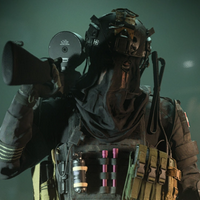
König
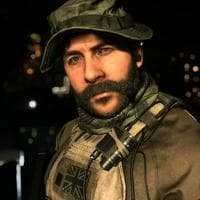
Captain Price (MW 2019 & 2022)
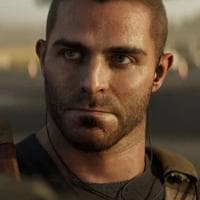
Johnny “Soap” MacTavish (MW2022)
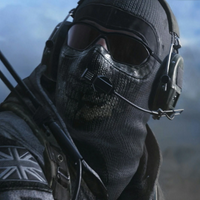
Simon "Ghost" Riley (MW 2)
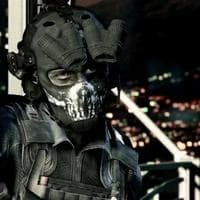
Keegan Russ

You, the Player (Vote your Type)
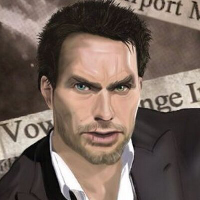
Vladimir Makarov
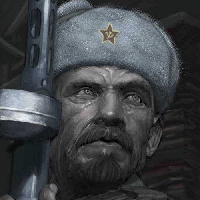
Viktor Reznov

